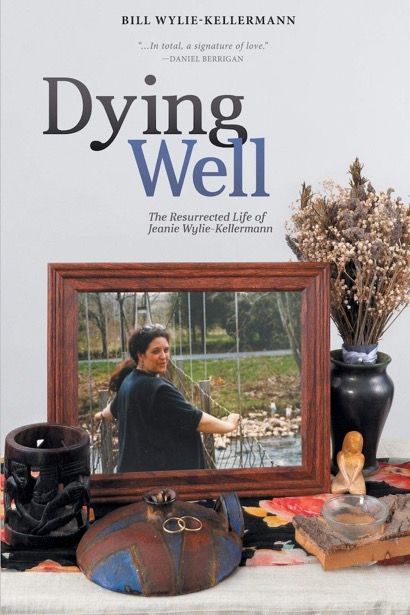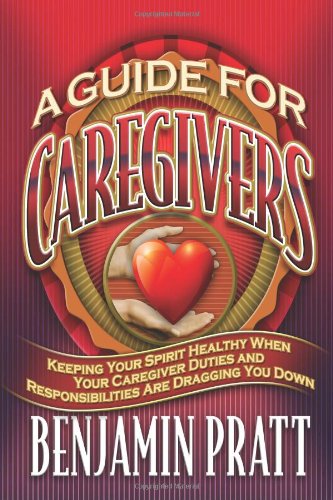By DAVID CRUMM
Editor of ReadTheSpirit magazine
Take heed of the eight words on the first page of this memoir: “This book is verily an event of community.”
In one sentence, that’s a great summary of Dying Well: The Resurrected Life of Jeanie Wylie-Kellermann—right down to that fourth word evoking the era of Chaucer, “verily.” Nationally known peace activist, theologian and author Bill Wylie-Kellermann is the husband and chronicler of his late wife Jeanie’s robust life as a journalist and social-justice activist, as well as her unique journey toward death. In “verily” on the first page, Bill is signaling to readers that this book is as much about memory as it is about the cutting-edge activism that is so close to the heart of this family.
Dying Well is a profound love story about the two writer-activists who led a tumultuous life at the barricades of many justice issues—and then shared in an equally inspiring, seven-year odyssey toward Jeanie’s home-based death.
Remembering Our Families
This book certainly is all of that—but it also is an invitation for readers to remember. Remember a real love story you’ve known of an impassioned couple who become equally passionate parents. Remember the best of family life. And remember—when the arc of life is closing its path in this tangible world—remember how loving families used to care for the dying and then the mourners in the humble surroundings of home.
“As readers experience our story, many of them are going to remember things about their own families. In our collective memory—in our community memory—we all know a lot more about family life and the eventual process of death and dying than we realize,” Bill Wylie-Kellermann said in an interview about his book. “Talk to your relatives, especially the older people, and you’ll find we are not that far removed from vigils for loved ones that were held in parlors, back before the funeral industry took over most of this process from us. These family-based and community-based stories of caring for the dying, right up through the vigil and funeral—that’s a memory only a generation or two removed from most of us.
“This whole process once was something we all did for ourselves, along with the community. That was true all over the country. These memories are still in our bones. We still can choose to come together as family and community in ways that once were so natural for us. This story isn’t as much about pushing some new agenda as it is remembering the power of community and family.”
Love Jumps Off the Page
“Reading these pages, the love will jump right off the page,” writes their daughter, the writer-activist Lydia Wylie-Kellermann in her Foreword to the book.
“This is indeed a book about my mom, about community, and about dying in a culture of death,” Lydia writes. “But it is also a very real story about the ones who care for the dying—who walk beside in all the ups and downs, laugher and tears, living and dying.”
She sums up her Foreword in these words: “This is a gift you hold in your hands, a love letter, a story. I give thanks for all those who love the dying—some of the most important and courageous work there is. And so often lonely, thankless and long. I hope that within these pages, we all find a bit of your own story and a friend on the journey.”
‘Flashes of Raw Beauty’
One early reviewer, the author Laurel Dykstra, describe the book’s mix of letters, poetry and stories as “flashes of raw beauty and abject brilliance.”
The theologian Walter Brueggemann writes, “Of course all of us are precious in God’s sight. But some of ‘all of us’ stand out because of their freedom, their courage and their tenacity. We call them ‘saints.’ Jeanie Wylie-Kellermann was one such. She embodied gospel passion that led her beyond herself to a rich network of justice and restoration.”
Bonnie Anderson of the Episcopal Divinity School at Union Theological Seminary, writes, “Jeanie and Bill Wylie-Kellermann created a template for the rooted in love and community, supported by courage and faith. The words seem simple, living them is not.”
The Larger Meaning of Resurrection
The book’s subtitle has caught the eyes of many readers: The Resurrected Life of Jeanie Wylie-Kellermann. That’s especially true as they read the first line of the book’s description on Amazon: “A loving memoir about the life, illness, death and resurrection freedom of Christian mother, writer and community activist Jeanie Wylie-Kellermann.”
Bill is nationally known as a theologian who has taught over the years at a number of seminaries. Together, Bill and Jeanie taught an expansive view of the Christian meaning of resurrection.
“Most people may think of resurrection as something that happens after death, and they talk about it only related to terminal moments in life,” Bill said in our interview. “We see resurrection as a way of life, the risks you take in life to pursue the work you need to do. In many ways, resurrection is about freedom to live because you feel a freedom to die. Jesus talks about this so clearly as he calls people to discipleship. Jesus tells his followers: Nobody can take my life; I lay it down freely. That freedom changes everything about our ways of living.
“Jeanie lived that freedom and was able to take all kinds of risks, political and otherwise, that were rooted in her understanding—our understanding together—of what resurrection means.
“I hope that readers of this book will realize that dying well is related to the freedom to die, which includes the struggle to live. I want people to think of her resurrected life not only in the sense of eternity or communal memory—but also in terms of how we can live our lives now in the resurrection.”
A Call to Action
This book should come with a warning label. As a result of reading this book, you’re likely to have new conversations with your own friends and family. Together, you may decide to make some changes, perhaps to do something different with those in your community than you’ve dared to do before. The book is a call to action.
“When we faced Jeanie’s diagnosis, we accepted lots of advice about how to do this from the many people in our community and overall it was very helpful,” Bill said. “All too often, I see people trying to organize caregiving with just one or two people who will try to shoulder the entire burden. That’s a very hard way to do this. Reading this book, I think you’ll come away inspired to reach out and ask a larger circle of people to come together. you need lots of people to lean on in such a journey. Our society isn’t organized in that way. We’re too timid about reaching out and asking others to help.
“For me, this is a proclamation of the Gospel—the good news of Jesus—which I believe is incarnational and multi-faceted. Telling you about Jeanie’s life and death is my way of proclaiming the Gospel and sharing this good news with you and your community.”
.
Care to learn more?
You can learn more about Bill Wylie-Kellermann’s work at his personal website.
Lydia Wylie-Kellermann is the editor of Geez magazine and the co-curator of RadicalDiscipleship.net.
Then, if you’re interested in the challenges of caregiving—and millions of American families are—then you need to know: We wrote the book on that!
Popular writer and pastoral counselor Benjamin Pratt wrote the book that’s become an inspiring, reassuring and, in some sections, downright funny: Guide for Caregivers—Keeping Your Spirit Healthy When Your Caregiver Duties and Responsibilities Are Dragging You Down.
Over the years, Read the Spirit Books and Front Edge Publishing have published a number of books that are useful for small group discussion—or that you could give as gifts to breast cancer survivors and their families.
In a special column for Breast Cancer Awareness Month, Front Edge marketing director Susan Stitt wrote about four books we have published, including Ben Pratt’s book, that are helping readers and their families cope with cancer. Her column also highlights two books we publish that help families and friends after a death.



David Crumm, Thank You.
Bill, Jeanie, and Daughters, two.
Celebration, through.